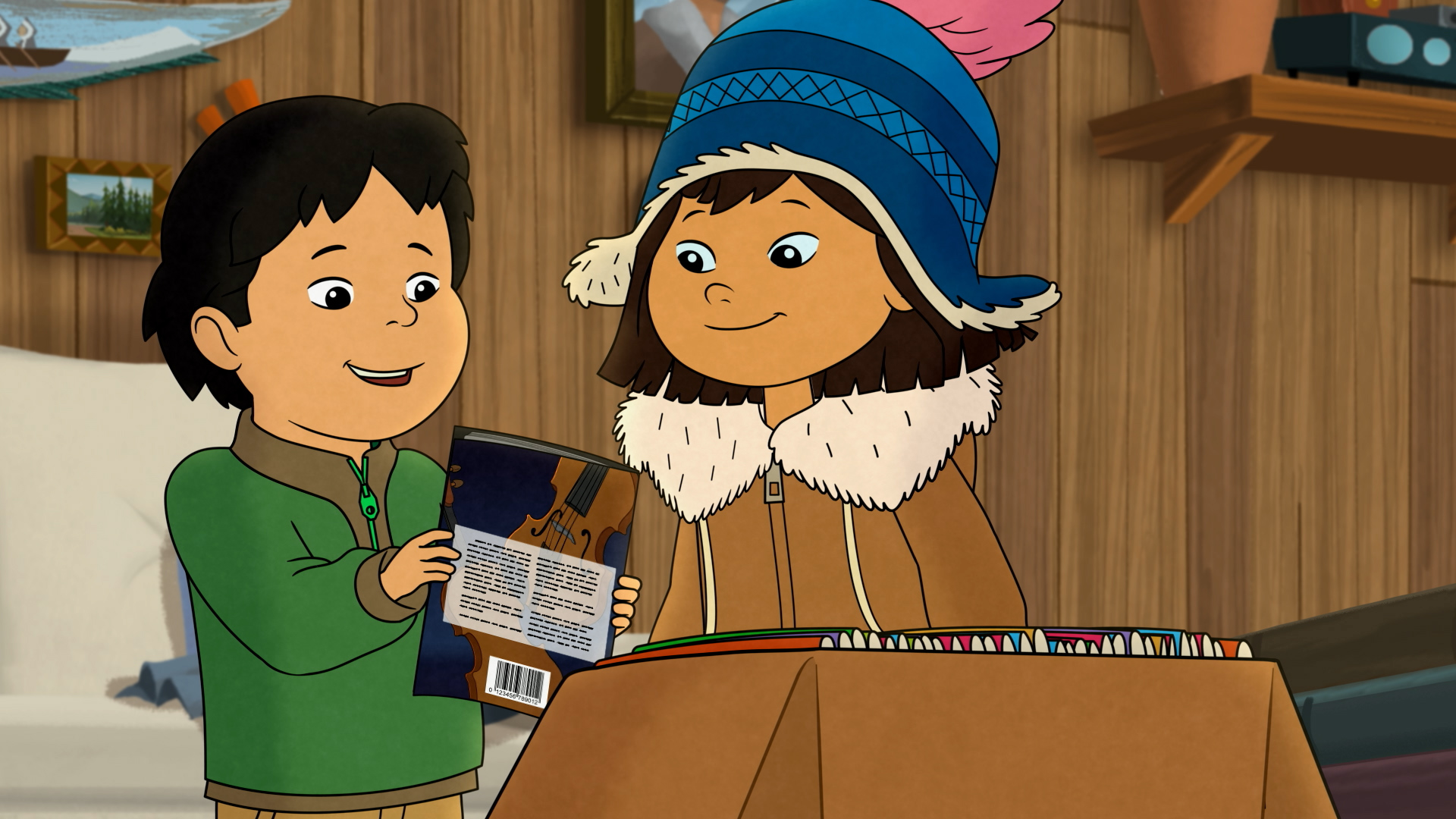Using and Creating Informational Texts at Home

You are here
By Crystal N. Wise and Nell K. Duke
Information is all around us. We read it, see it, hear it—sometimes it feels like we breathe it. Learning how to find, digest, and create information are important skills that you can start helping your child build today. In fact, you’re probably already doing it! Are you reading about places to visit with your child or writing family recipes together? Then you’re showing your child the value of informational texts. It is important for young children to begin to understand that people use and create informational texts to meet their needs and wants.
From a picture book about how rainbows appear in the sky to an in-depth website on car repair, informational texts help us follow our interests and solve our problems. For young children, listening to, reading, writing, and illustrating informational texts is a great way to build knowledge and vocabulary in science, social studies, and the arts—and a great foundation for success in school and life.
What is informational text?
Educators use the term “informational text” broadly, including anything from a podcast to a graphic to a book that’s created mainly to provide information. Newspapers, documentaries, nutrition labels, maps, science articles, and many websites are all informational texts. Once you start thinking about it, you’ll see informational texts everywhere. For example, craft and board game instructions are informational texts that teach how to do something. These texts can lead to lots of fun! Others, like bus schedules and grocery lists, support us in completing everyday tasks.

Molly of Denali ©2019 WGBH Educational Foundation.
How can you support your child in learning with informational texts?
Here are some suggestions:
-
Find your child’s informational interests. Help your child conduct internet searches for books, articles, images, or videos on topics of interest. Does your child love dinosaurs? Dolphins? Dogs? As you are searching, encourage your child to help you think of good search terms.
-
Make running errands faster and more interesting. Make a list of errands with your child and then use a map to plan the route together. Ask your local librarian for child-friendly informational materials related to the errands, such as books about how foods you buy at the grocery store are made.
-
Create recipes and cook up some learning. While cooking your child’s favorite meal, talk about the ingredients and steps. Help your child write down the recipe or video record the preparation as your child describes each step (“Cut . . .” “Stir. . .”). Then, share the written or video recipe with friends or other family members, especially for occasions when your little one is their guest!
-
Watch Molly of Denali on PBS KIDS! Molly is a resourceful and curious 10-year-old who loves to explore the world around her. She also enjoys using informational texts to solve problems and help others. As you watch Molly of Denali with your child, talk about the different types of texts Molly uses and creates. Discuss how Molly uses these texts to solve real-world problems, satisfy her curiosity, and teach others.
Engaging with informational texts at home and in your community helps your child develop literacy and problem-solving skills, discover new interests, and learn about the world. Most importantly, it is an excellent opportunity to spend time with your child, making the most of your everyday experiences together.
Find more ideas for learning with informational text at https://pbskids.org/molly.
Molly of Denali, produced by WGBH Boston, was developed as part of the Corporation for Public Broadcasting (CPB) and PBS Ready To Learn Initiative with funding from the US Department of Education. Ready To Learn is a federal grant program that supports the development of innovative educational television and digital media for preschool and early elementary school children and their families.
PBS KIDS and the PBS KIDS Logo are registered trademarks of PBS. Used with permission. The contents of this graphic were developed under a grant from the Department of Education. However, those contents do not necessarily represent the policy of the Department of Education, and you should not assume endorsement by the Federal Government. The project is funded by a Ready To Learn grant (PR/AWARD No. U295A150003, CFDA No. 84.295A) provided by the Department of Education to the Corporation for Public Broadcasting.
Crystal N. Wise, Ph.D., is a postdoctoral research fellow at the School of Education at the University of Michigan. Her research focuses on early literacy development. She is also a former kindergarten and second-grade teacher.
Nell K. Duke, EdD is a professor in Literacy, Language, and Culture and also in the Combined Program in Education and Psychology at the University of Michigan. Duke’s award-winning work in education research, policy, and practice focuses on early literacy development, particularly among children living in under-resourced communities. Duke serves as an advisor to the PBS/CPB Ready to Learn Initiative and informational text advisor for Molly of Denali.